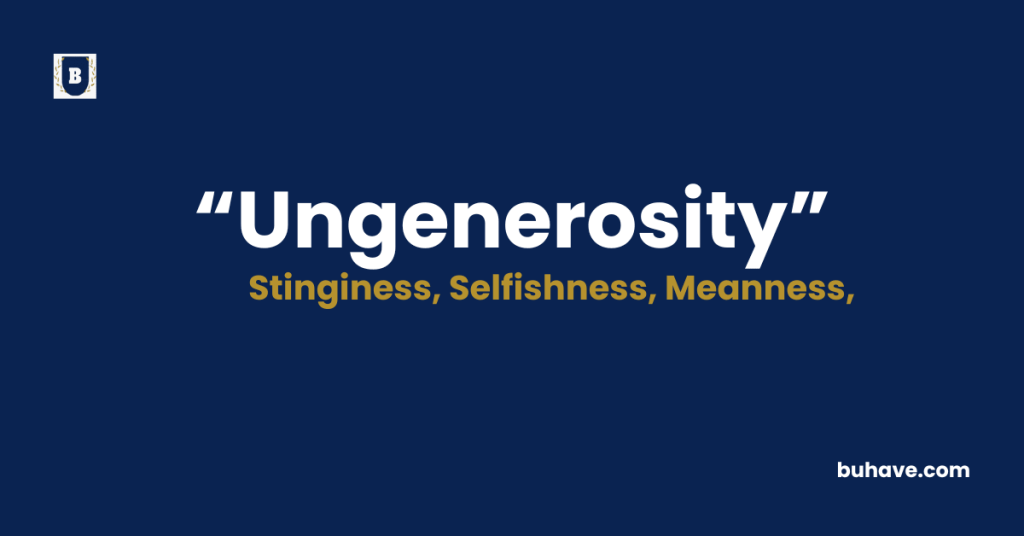The word ‘Ungenerosity’ (Noun) refers to the lack of willingness to give or share; it describes a state of being selfish, stingy, or uncharitable. In this guide, you’ll learn the full definition, origin, examples, synonyms, antonyms, and FAQs on how to use ‘Ungenerosity’ correctly in sentences.
Ungenerosity Explained in Depth
A complete and detailed guide to the word ‘Ungenerosity’ including meaning, definition, examples, etymology, synonyms, and antonyms.
Meanings of Ungenerosity
Ungenerosity means the absence of generosity. It implies a reluctance to share, help, or give to others—whether it involves money, time, or kindness. Someone showing ungenerosity often acts with selfishness or tightness.
Definition
Ungenerosity is defined as an unwillingness to give, share, or offer support or kindness. It represents a withholding nature, where someone avoids generosity in action, spirit, or intention.
Etymology
The word “ungenerosity” is formed by adding the prefix un- (meaning “not” or “opposite of”) to “generosity.” The root “generosity” comes from Latin generosus, meaning “noble” or “magnanimous.” Thus, ungenerosity represents the opposite of nobility in giving or sharing.
Example Sentences
- Their ungenerosity became clear when they refused to contribute to the team effort.
- She was criticized for her ungenerosity during the fundraiser.
- His ungenerosity strained his relationships with friends and family.
Ungenerosity Synonyms
- Stinginess
- Selfishness
- Meanness
- Avarice
- Niggardliness
- Greed
- Parsimony
- Self-centeredness
- Tightfistedness
- Inhospitality
Ungenerosity Antonyms
- Generosity
- Kindness
- Liberality
- Charity
- Altruism
- Benevolence
- Big-heartedness
- Openhandedness
- Selflessness
- Philanthropy
FAQs about Ungenerosity
Here are some frequently asked questions (FAQs) about the word “Ungenerosity”
1, Is “ungenerosity” a commonly used word?
No, “ungenerosity” is less commonly used than “stinginess” or “selfishness,” but it is grammatically correct and clearly understood.
2. What is the difference between ungenerosity and selfishness?
Ungenerosity focuses more on a lack of giving or sharing, while selfishness encompasses a broader range of self-centered behavior.
3. Can you describe a person as ungenerous?
Yes, the adjective form is “ungenerous,” used to describe someone who is not generous.
4. Does ungenerosity always relate to money?
No, it can also relate to time, attention, emotional support, or any other resource one could share with others.
5. How do you use “ungenerosity” in a sentence?
For example: “His ungenerosity was evident when he refused to lend a hand despite having the time and means to help.”

















